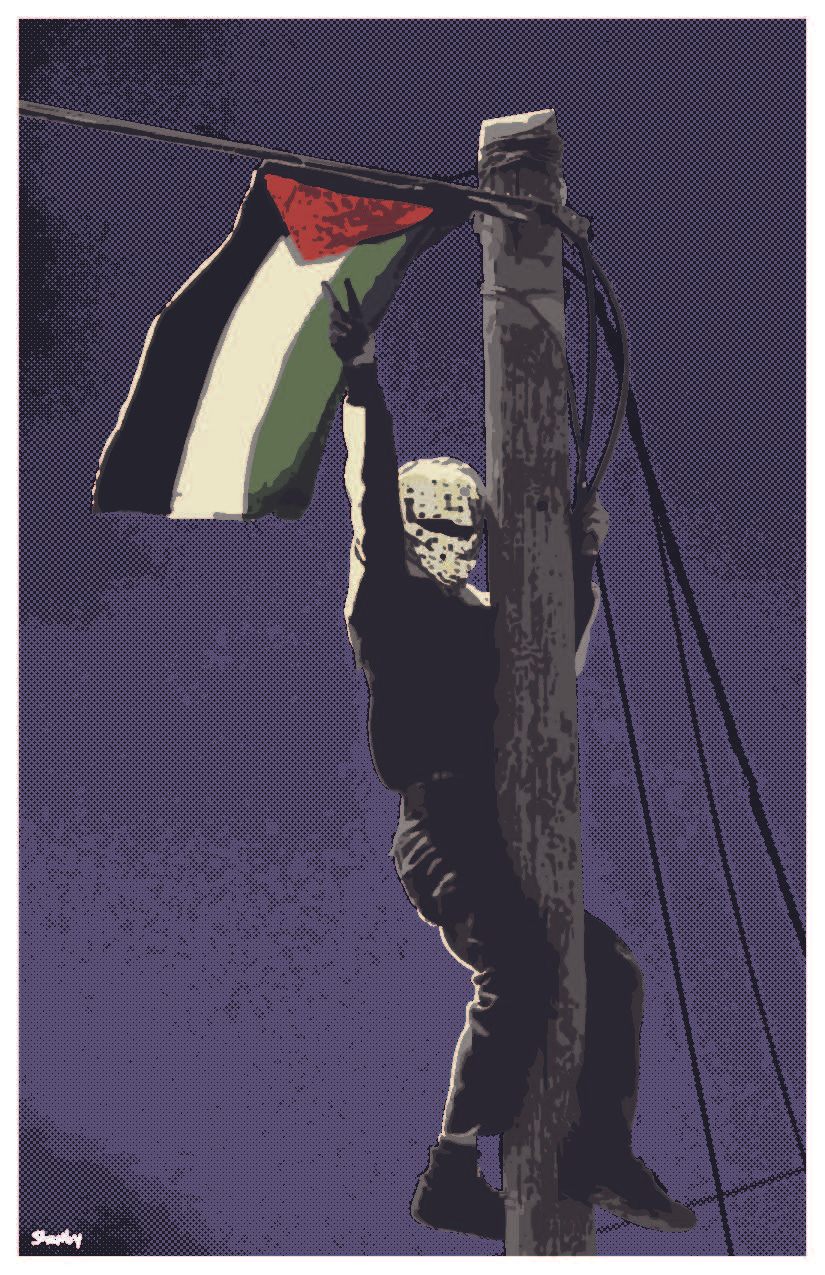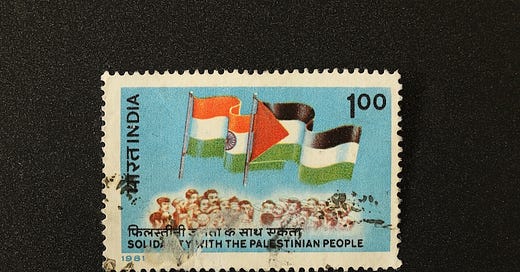Motto
In the dark times
Will there also be singing?
Yes, there will also be singing.
About the dark times.
– Bertolt BrechtHello readers!
I wanted to write this post for a very long time now. I made a draft 4 months ago, but I just couldn’t get myself to write anything. I didn’t know what to write, or even how to write. All I could do was absorb. Absorb deeply everything that has been happening.
There have been several humanitarian crises during the 20th and 21st century. Each being equally catastrophic for people. But this was perhaps the first time we are witnessing a genocide being live telecasted to our phones.
Day after day, we watch people being killed in the most inhumane ways imaginable. As if Palestinian life has no value for the world. Massacres of the most hellish kind. And it just isn’t about killing people. Their entire life systems, every infrastructure to support life, destroyed. Razed into rubble. Homes, schools, hospitals, freaking hospitals. Bakeries, restaurants, hotels, shops, markets. The entire Gaza strip became a living, breathing graveyard. And all of this happened in real time on our phones.
The thing that unsettled me the most was silence. I am used to people maintaining silence through the worst of events. Compartmentalizing their lives from the harsh realities of world by calling it “too political”. But this time I couldn’t tolerate this silence. How could people look away from this.
Unable to make sense of anything, I returned to words. I spend my time finding solidarity in words. Words have been a refuge for me, as they have been for people throughout history. These words of resistance provided me with tremendous solidarity and solace in these dark times.
This was my first time reading Palestinian poets. There is a certain radicalness to their words. They are so strongly grounded in their homeland, their communities, their culture and heritage. And all of them carry an aura of grief. That was something that immediately stood out for me. Even if their is no direct mention of loss, the poems speak so loudly of losing one’s homeland. This is the truth of poems from occupied lands. As Uzma Falak, a Kashmiri poet says, “the smallest unit of time in Kashmir is a siege”. Let’s not forget, Kashmir and Filastin have shared the same fate.

Poems from Gaza
Think Of Others – Mahmoud Darwish Translated by Mohammed Shaheen As you prepare your breakfast, think of others (do not forget the pigeon’s food). As you conduct your wars, think of others (do not forget those who seek peace). As you pay your water bill, think of others (those who are nursed by clouds). As you return home, to your home, think of others (do not forget the people of the camps). As you sleep and count the stars, think of others (those who have nowhere to sleep). As you liberate yourself in metaphor, think of others (those who have lost the right to speak). As you think of others far away, think of yourself (say: “If only I were a candle in the dark”). What is Home? – Mosab Abu Toha What is home: it is the shade of trees on my way to school before they were uprooted. It is my grandparents’ black-and-white wedding photo before the walls crumbled. It is my uncle’s prayer rug, where dozens of ants slept on wintry nights, before it was looted and put in a museum. It is the oven my mother used to bake bread and roast chicken before a bomb reduced our house to ashes. It is the café where I watched football matches and played— My child stops me: Can a four-letter word hold all of these? Before I Was a Gazan – Naomi Shihab Nye I was a boy and my homework was missing, paper with numbers on it, stacked and lined, I was looking for my piece of paper, proud of this plus that, then multiplied, not remembering if I had left it on the table after showing to my uncle or the shelf after combing my hair but it was still somewhere and I was going to find it and turn it in, make my teacher happy, make her say my name to the whole class, before everything got subtracted in a minute even my uncle even my teacher even the best math student and his baby sister who couldn’t talk yet. And now I would do anything for a problem I could solve.
Poems from Kashmir
KASHMIR (After Agha Shahid Ali) – Danyal Hassan Let me cry out in that void, say it as I can. I write on that void: Kashmir, Land Kaschmir, Mother’s— Cashmere, Stolen Qashmir, Teardrop Cashmir, Shoes Cashmire, Frisking Kashmere, Blood Cachemire, Garden history Cushmeer, Little finger Cachmiere, Smoke Cašmir. Siege. (trigger) Or Cauchemar, Hospitals In a sea of stories. Or: Kachmir; PTSD Kaschemir, Night After Night Kasmere, Teacups. Cold— Kachmire, Militants Kasmir, Trout fish Kerseymere? Life. Or Occupation? In Kashmir: Writing under Occupation (excerpt) – Ather Zia they want us to write. in blood. and only write. of peace. they capture our land. make us sow rice that is not seed. kill us. rape. They tell us we are ungrateful. like children – who do not see what is good for them. holding us with many kinds of guns; they grimace at the world calling our blood on their faces – vermillion Postcard from Kashmir – Agha Shahid Ali Kashmir shrinks into my mailbox, my home a neat four by six inches. I always loved neatness. Now I hold the half-inch Himalayas in my hand. This is home. And this the closest I'll ever be to home. When I return, the colors won't be so brilliant, the Jhelum's waters so clean, so ultramarine. My love so overexposed. And my memory will be a little out of focus, in it a giant negative, black and white, still undeveloped.
Other Links to Words of Resistance
I have hyperlinked other poems by these Kashmiri poets in the main title of the poem. Do take out the time to read them. Here are some more links to other words of resistance.
Arundhati Roy’s words on India’s position on Gaza: Our country has lost its moral compass.
Arundhati Roy’s words on Kashmir: The Silence Is the Loudest Sound.
Aamir Aziz’s stirring poem during the anti-CAA protests. Sab Yaad Rakha Jaayega (Everything will be remembered), and the English translation of it.
And finally, this poem by my beloved Hindi poet Sarveshvar Dayal Saxena. Written ages ago, these words have gained immense relevancy (unfortunately) in our present times. Desh Kagaz Par Bana Naksha Nahin Hota (A country is not a map drawn on paper). Saxena asks some questions whose answer our generation is struggling to find.
If one room in your house is engulfed in flames would you be able to sleep in the room next to it?
If one room in your house is full of rotting corpses would you be able to pray in the room next to it?
The People’s Psychology (sharing some of the most relevant insights), recently said:
We have a responsibility to do whatever we can, no matter how small and insignificant and powerless we feel. We have a responsibility to be honest with ourselves and about our emotions and actions. It’s okay if we feel powerless and paralyzed, if we seek escapes and distractions - that’s human - but we need to make sure we don’t stay there.
I think I needed to hear this. I wanted someone to say those words for all of us to hear. Resisting is our responsibility.
Yes, it can be tremendously paralyzing to think about the hugeness of the systems we are fighting against. The fight may even seem pointless. It is easy to dissociate from it. Compartmentalize it into some isolated corner away from our personal lives by calling it “too much political”. As if politics exists only in newspapers and headlines. But the fact is, everything is political. Our lives exist in the very same universe as these headlines.
Resistance becomes a duty. As members of a community, we must resist the forces of injustice hell bent on destroying our communities. We must find solidarity and solace in others’ resistance. That is why these poems exists. To provide shelter to our resistance.
We need to make intentional choices and efforts about the kind of world we want to create, and the values we want for this world. And for this we have to work, we have to do our bit for the resistance. This can take countless forms, and each form matters tremendously. Read, educate yourself, share resources with others. Speak up. Sharing a post on social media makes a big difference. Discuss these issues with people around you. Support independent journalism. Get to work. Here’s a great post I found that conveys what we can do instead.
And lastly, remember that if you ever feel tired and hopeless, struggling to make sense of it, you can always find shelter in words. But never stop singing about the dark times.
Sending you strength and courage.
When Life Gives You Melon
Choose Water over Choly 🍉
Aakash xx




